With Vedic terms flying thick and fast, here’s a glossary of terms you need to master to follow Ram Mandir debate
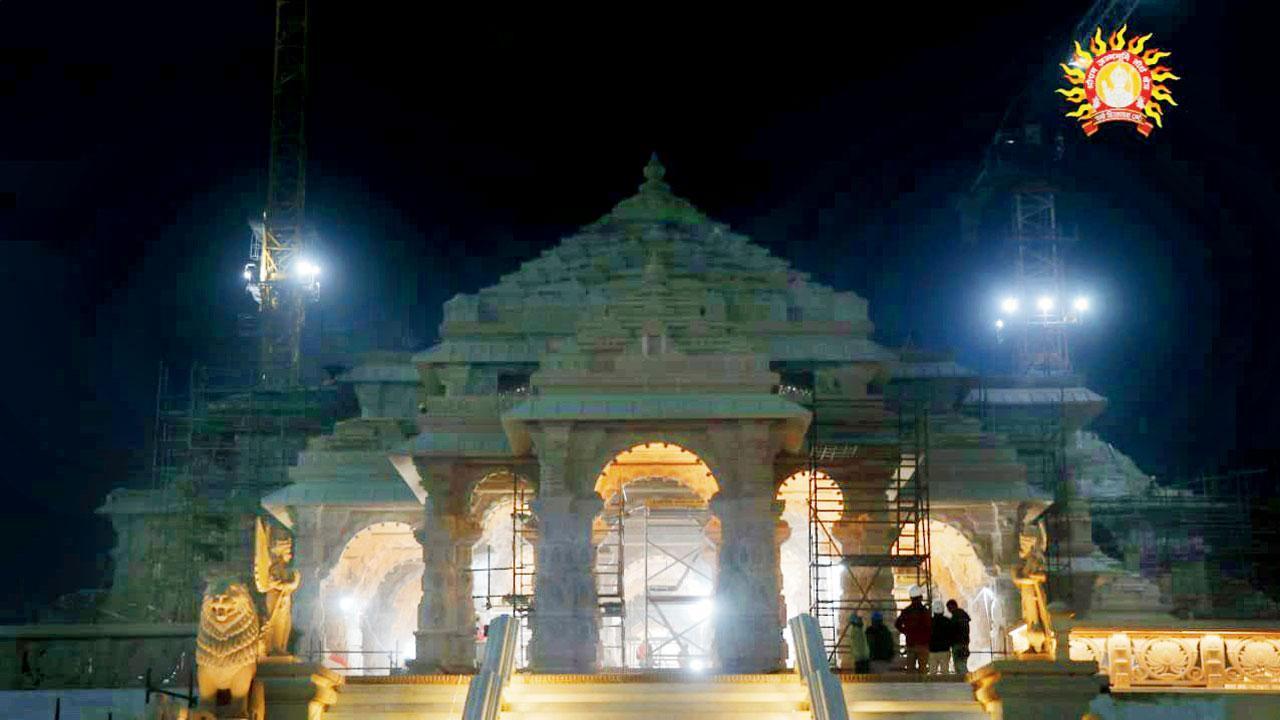
The temple under construction. Pic/Ayodhya Temple Trust
If you are young and curious, there are many words around the Ram Temple inauguration that might have you in tizzy as you strive to keep up with the news cycle. We simplify the 75-year-old issue, which will culminate with the consecration of a temple on January 22 using some of the oft-repeated words you might be seeing in the news and on social media. Strap on.
ADVERTISEMENT
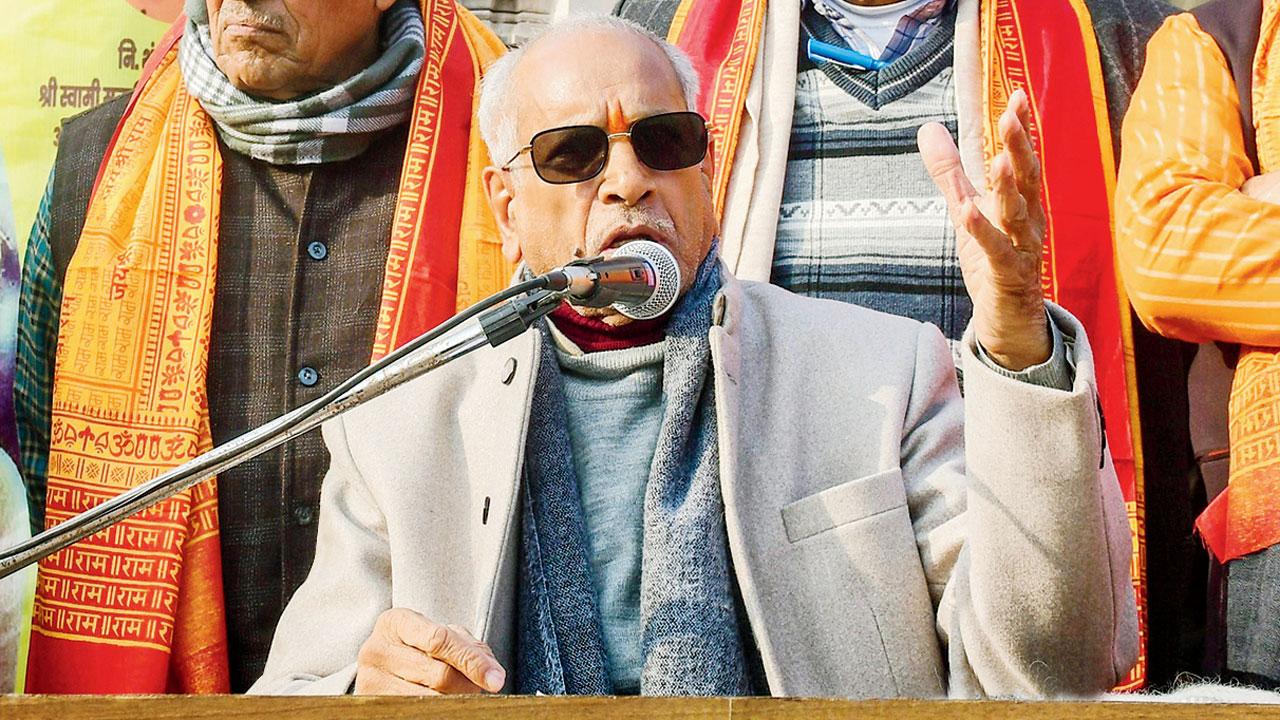
Champat Rai, general secretary, Shri Ram Janmabhoomi Tirath Kshetra Trust
Rath Yatra
What it means: A nationwide tour seeking support for the temple
Current context: Then BJP president LK Advani began a Ram Rath Yatra or ‘Chariot Tour’ criss-crossing the country on September 25, 1990, in Somnath, Gujarat, in what was to become a pivotal event in Indian politics.
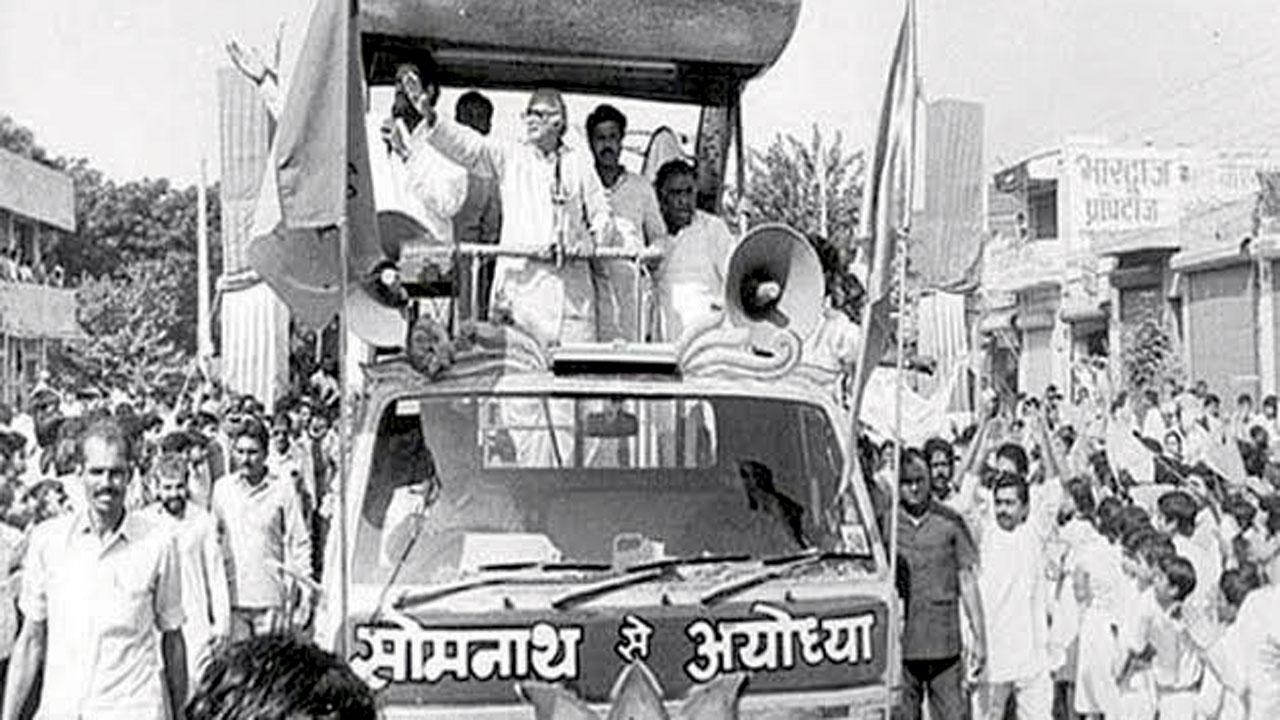
BJP leader L K Advani carrying out Rath Yatra, PM Modi was also part of the yatra; (right box) Kar Sevaks on top of Babri Masjid. Pics/Twitter
The Yatra was scheduled to conclude at Ayodhya after travelling through 16 states. The goal of the political effort was to get support for building a Ram temple at the contentious location in Ayodhya. Advani’s selection of a “rath,” or chariot, as the means of transportation represented the journey of Lord Ram as told in the Hindu epic Ramayana. The Yatra was abruptly concluded on October 22, 1990, when Advani was arrested, flown into Dumka, now in Jharkhand, by the government of the then CM of Bihar, Lalu Prasad Yadav.
But the Yatra had by then achieved what it set out to.
Ram Lalla
What it means: Idol of Lord Ram in infant form
Current context: The 51-inch-tall black stone idol, represents a five-year-old Lord. Now, ‘Ram Lalla’ might mean either of two idols – the one that arrived in the temple complex on Jan 18, and the one that “miraculously appeared” inside the central dome of what was then the Babri Masjid on the intervening night of Dec 22-23 in 1949.
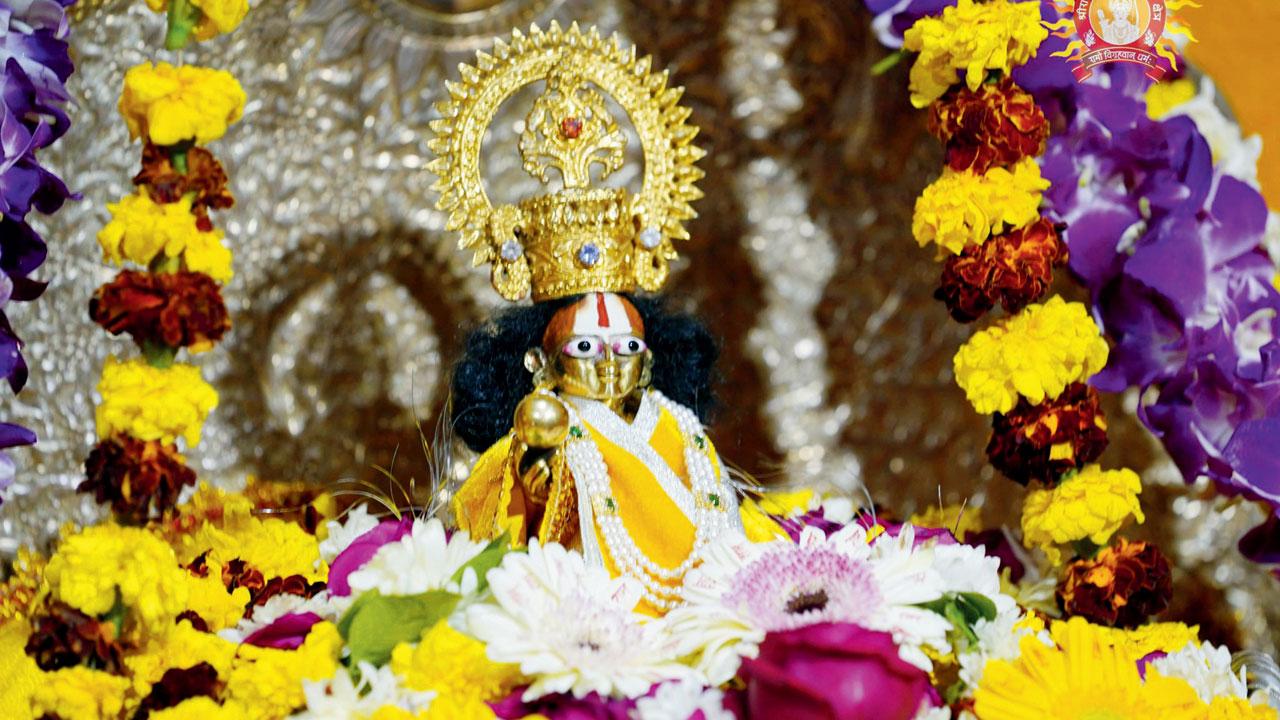
The idol of Lord Ram in infant form. Pic/Twitter
This deity, which has graced the premises for 74 year since 1949, changed the course of Indian history and is the basis on which the entire temple movement stands, with the Sangh Parivar still celebrating that December day as the Prakatotsav Diwas.
For the new temple three idols were commissioned, with the black stone version carved by Mysore sculptor Arun Yogiraj winning the bragging rights to be the main idol. “The remaining two idols of will also be enthroned on the first and second floors of the Ram Mandir,” said Champat Rai, general secretary of the trust.
Shri Ram Janmabhoomi Tirtha Kshetra
What it means: The trust set up for the construction and management of Ram Mandir in Ayodhya by the Government of India in February 2020, following the Supreme Court ruling.
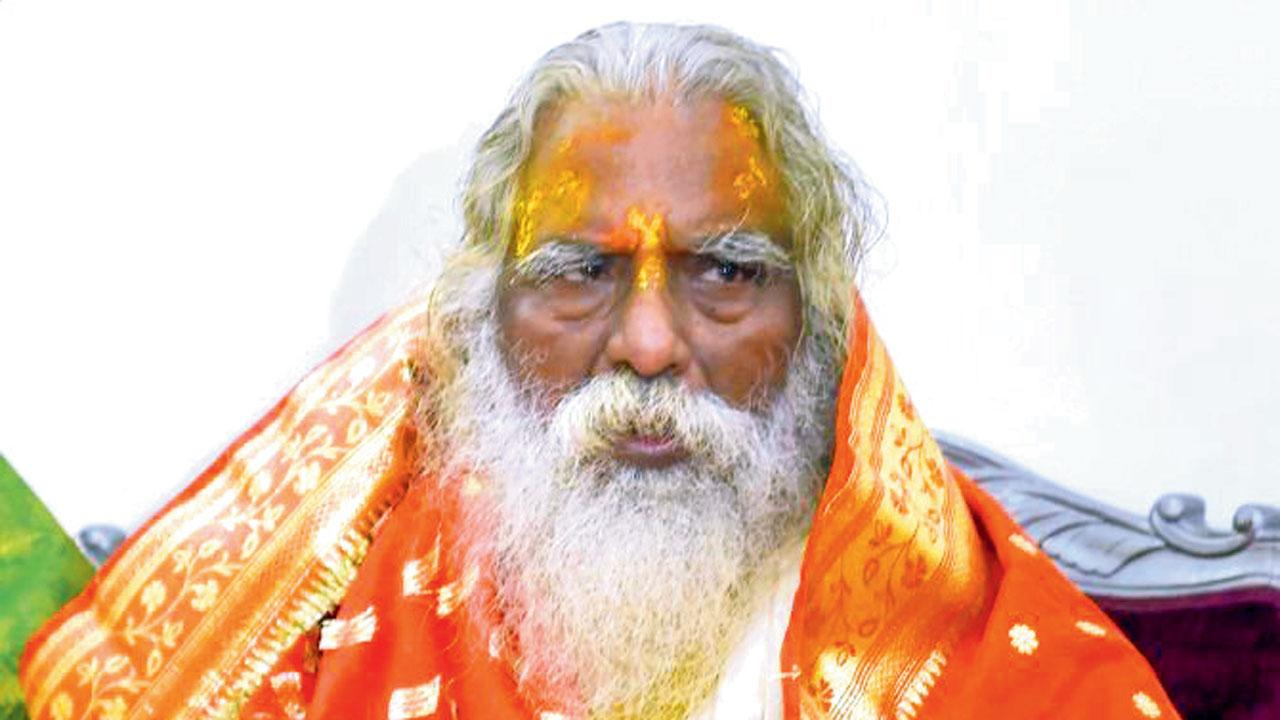
Mahant Nritya Gopal Das
Current context: The trust has 15 trustees, and was created as per the verdict of the Supreme Court (SC). On February 5, 2020, PM Modi declared the establishment of the trust in Lok Sabha. Following the SC decision in this regard, the trust was granted ownership of both the disputed 2.77-acre land and the 67.703-acre land. Twelve out of the 15 trust members were nominated by the central government. On February 19, 2020, the trust nominated the rest of its members and elected Mahant Nrityagopal Das as the chairman.
Shankaracharya
What it means: The title held by the heads of four cardinal mathas or peeths, believed to be established by Adi Shankara. India has four Shankaracharyas.
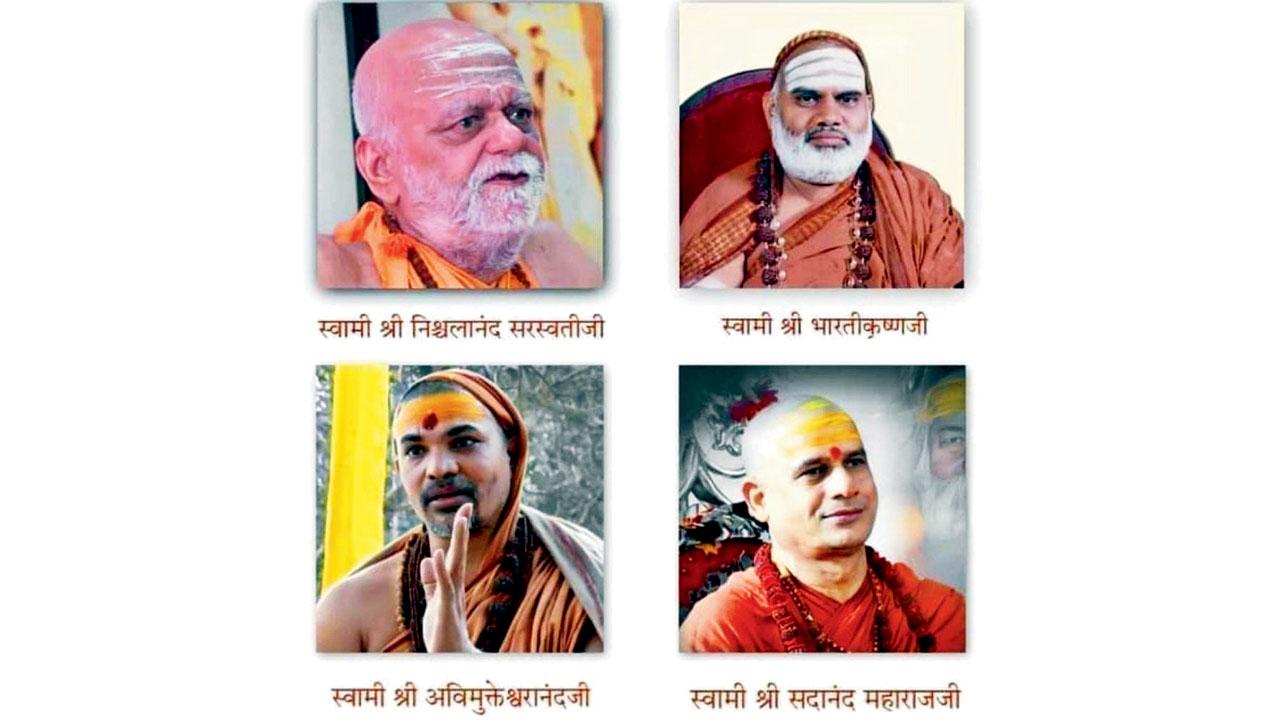 The four Shankaracharyas
The four Shankaracharyas
Current context: The Shankaracharyas head the four Hindu mathas (monasteries) — in Dwarka (Gujarat), Joshimath (Uttarakhand), Puri (Odisha), and Sringeri (Karnataka) — that are believed to have been founded by the eighth-century religious scholar and philosopher Adi Shankara.
Two of them will not be attending the January 22 function.
Shilanyas
What it means: Foundation stone-laying
Current context: Again, while one will happen next week, the significant shilanyas happened in 1989, once the then Rajiv Gandhi government opened the gates of the mosque and allowed Hindus to offer prayers. That foundation laying on November 9, 1989, which also incidentally coincided with the seismic fall of the Berlin Wall in Germany, put the mandir issue on the national centre stage, powering the BJP from a mere two seats to its brute majority today.
Speaking to the Hindi daily Amar Ujala, a senior member of the temple trust said the foundation of the current complex was done at “a special time” on a special day.
Kar Sevak
What it means: Religious volunteers
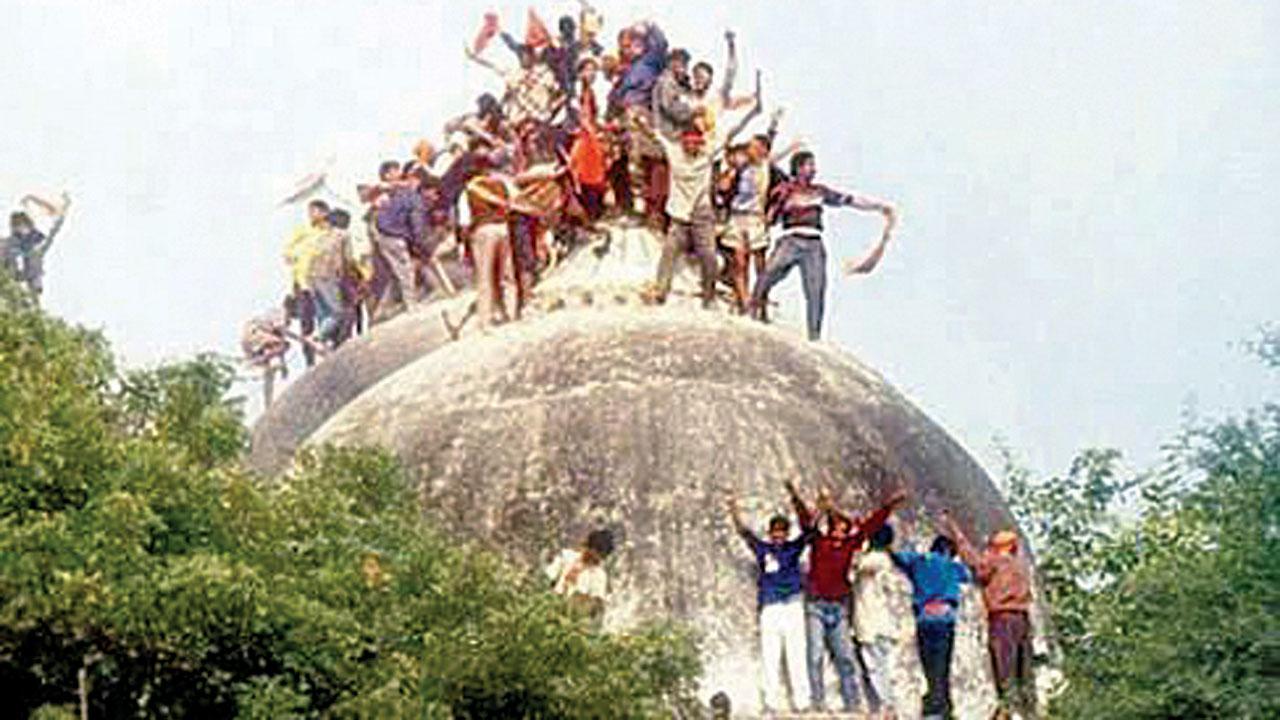
Current context: The Yatra led to violence across the country. Things took a tragic turn when in October and November 1990, the UP Mulayam Singh Yadav government was forced to open fire on Kar Sevaks who had assembled in Ayodhya. Over 500 were reported killed according to official accounts. Reports have said that the temple trust has invited the families of the martyred Kar Sevaks to Monday’s inauguration.
Pran Pratishtha
What it means: Consecration ceremony
Current context: Pran Pratistha or consecration ceremony of idol has been in controversy after the opposition alleged that it was inappropriate to be held in an under-construction temple according vedic rituals, and that it had been politicised in light of the upcoming polls. The absence of two Shankaracharyas has added to the fracas. Puri Shankaracharya Swami Nischalaanand Saraswati Maharaj told India Today TV, “I will not attend [the ceremony] as shastras are not being followed. There is a difference between [inaugurating Sardar] Patel’s statue and Lord
Ram’s idol.”
Garbha Griha
What it means: Sanctum sanctorum, the inner chamber of the temple where the main deity is placed
Current context: A garbhagriha is the innermost sanctuary of Hindu and Jain temples, what may be called “holy of holies” or “sanctum sanctorum”. Ahead of the long-awaited Pran Pratistha ceremony, the golden door of the temple’s garbha griha has been installed. This is where the idol of Ram Lalla has been kept for the consecration ceremony.
Anushthan
What it means: Ritual (this word is also known as karmakand according to ancient texts)
Current context: Indian Prime Minister Narendra Modi, in an emotional message, announced that he is beginning an 11-day-long ‘anushthan’ or special ritual in the days leading up to the grand Ram Mandir consecration scheduled for January 22 in the Ayodhya temple city in the northern state of Uttar Pradesh. “Only 11 days are left for the consecration of Ram Lalla in Ayodhya. I am fortunate that I will also be a witness to this auspicious occasion. The Lord has made me an instrument to represent all the people of India during the consecration. Keeping this in mind, I am starting a special ritual of 11 days from today. I am seeking blessings from all the people. At this moment, it is very difficult to express my feelings in words, but I have tried from my side,” the prime minister said in a post.
 Subscribe today by clicking the link and stay updated with the latest news!" Click here!
Subscribe today by clicking the link and stay updated with the latest news!" Click here!







